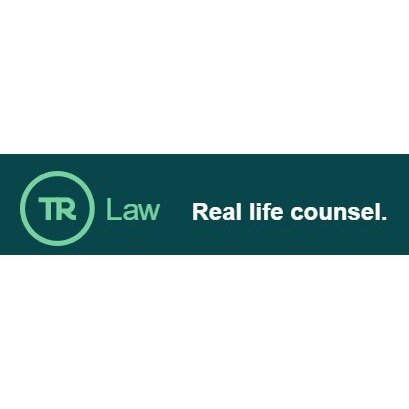Best Family Lawyers in Toronto
Share your needs with us, get contacted by law firms.
Free. Takes 2 min.
Free Guide to Hiring a Family Lawyer
List of the best lawyers in Toronto, Canada
Canada Family Legal Questions answered by Lawyers
Browse our 1 legal question about Family in Canada and read the lawyer answers, or ask your own questions for free.
- Hi there,I've been separated for 20yrs,would like to get divorced,
- What's the procedure, or legalities I'm facing, an how can you help?
-
Lawyer answer by mohammad mehdi ghanbari
Hello, Thank you for reaching out. I understand that navigating a divorce after a long period of separation can be a challenging and uncertain process, and I can offer some general guidance on the matter. General Divorce Procedure The first...
Read full answer
Canada Family Legal Articles
Browse our 1 legal article about Family in Canada written by expert lawyers.
- How to File for Divorce in Canada: A Step-by-Step Guide
- Family law in Canada covers separation, divorce, parenting, child support, spousal support, and property division, with rules split between federal law (Divorce Act) and provincial or territorial laws. You do not need a court order to separate, but you do need a court-issued divorce to legally end a marriage and... Read more →
About Family Law in Toronto, Canada
Family law in Toronto, Canada, deals with legal issues related to marriage, divorce, child custody, support payments, and property division. It is essential to have a solid understanding of family law to navigate these matters effectively.
Why You May Need a Lawyer
There are several common situations where seeking legal help in family law becomes necessary:
- Divorce or separation: A lawyer can guide you through the legal process, ensuring your rights are protected and helping with child custody, support, and division of assets.
- Child custody and access: If you're having difficulty determining custody arrangements or visitation rights, a lawyer can help negotiate, mediate, or represent your interests in court.
- Child and spousal support: A lawyer can assist in establishing fair support payments for children and/or spouses, taking into account factors like income, expenses, and the best interests of the child.
- Adoption or surrogacy: The adoption or surrogacy process can be complex. A lawyer can provide guidance and handle legal procedures to ensure a smooth and lawful transition.
- Domestic violence: If you or your children are facing domestic abuse, a lawyer can help obtain restraining orders, secure your safety, and navigate legal proceedings.
Local Laws Overview
In Toronto, Canada, several local laws pertain to family matters:
- Divorce Act: This federal law governs divorce and related matters, including custody, access, child support, and spousal support.
- Child Support Guidelines: These guidelines determine the amount of child support parents should pay based on their income, custody arrangements, and other relevant factors.
- Family Law Act: Provincial legislation that addresses property division, spousal support, child support, and domestic contracts.
- Children's Law Reform Act: This act outlines parental rights and responsibilities, custody and access arrangements, and decision-making authority.
Frequently Asked Questions
1. How long does it typically take to finalize a divorce in Toronto?
The time it takes to finalize a divorce varies depending on factors such as the complexity of the issues and whether both parties can reach agreements. It can take several months to over a year.
2. How is child custody determined in Toronto?
The court considers the best interests of the child and takes into account factors such as the child's relationship with each parent, their living arrangements, and their physical and emotional well-being.
3. What are the grounds for divorce in Toronto?
Under the Divorce Act, you can file for divorce on the grounds of separation for at least one year, adultery, or physical or mental cruelty.
4. Can grandparents seek custody or access to their grandchildren?
In certain circumstances, grandparents can apply for custody or access to their grandchildren if it is deemed to be in the best interests of the children.
5. How is child support calculated in Toronto?
Child support in Toronto is calculated according to the Child Support Guidelines, which take into account the payor's income, the number of children, and the custody arrangement. It is important to seek legal advice for an accurate calculation.
Additional Resources
Here are some valuable resources for obtaining legal advice and assistance in family matters:
- Ontario Family Law Limited Scope Services Project: Provides affordable legal services for specific aspects of family law.
- Family Law Information Centres: Government-run centers offering information, guidance, and referral services on family law matters.
- Law Society Referral Service: A service by the Law Society of Ontario that connects individuals with family law lawyers for a free consultation.
Next Steps
If you require legal assistance in family matters, consider taking the following steps:
- Educate yourself: Familiarize yourself with the basics of family law, local legislation, and any specific issues related to your situation.
- Seek legal advice: Consult with a reputable family law lawyer to discuss your case and receive tailored advice.
- Gather necessary documents: Collect any relevant documentation, such as marriage certificates, financial statements, or custody arrangements.
- Consider mediation or negotiation: Explore alternative dispute resolution methods to reach agreements outside of court, which can be faster and less costly.
- Engage legal representation: If necessary, hire a family law lawyer who will advocate for your rights and navigate the legal process on your behalf.
Lawzana helps you find the best lawyers and law firms in Toronto through a curated and pre-screened list of qualified legal professionals. Our platform offers rankings and detailed profiles of attorneys and law firms, allowing you to compare based on practice areas, including Family, experience, and client feedback.
Each profile includes a description of the firm's areas of practice, client reviews, team members and partners, year of establishment, spoken languages, office locations, contact information, social media presence, and any published articles or resources. Most firms on our platform speak English and are experienced in both local and international legal matters.
Get a quote from top-rated law firms in Toronto, Canada — quickly, securely, and without unnecessary hassle.
Disclaimer:
The information provided on this page is for general informational purposes only and does not constitute legal advice. While we strive to ensure the accuracy and relevance of the content, legal information may change over time, and interpretations of the law can vary. You should always consult with a qualified legal professional for advice specific to your situation.
We disclaim all liability for actions taken or not taken based on the content of this page. If you believe any information is incorrect or outdated, please contact us, and we will review and update it where appropriate.
Browse family law firms by service in Toronto, Canada
Toronto, Canada Attorneys in related practice areas.
















